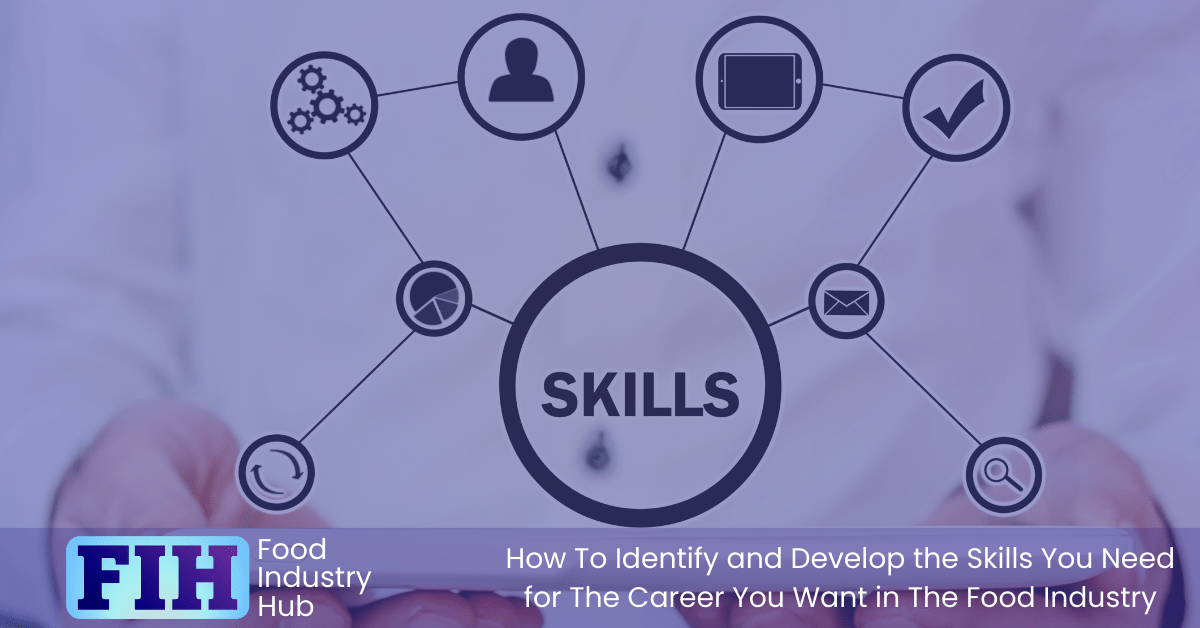Introduction
Are you a passionate professional seeking to pursue a promising career in the food manufacturing industry? Well, buckle up for a journey of self-discovery and skill development!
In this post, we will explore the art of identifying and developing the essential skills needed to thrive in this dynamic field. Whether you’re a fresh graduate or a seasoned veteran, understanding how to align your aspirations with the right skill set is crucial for success.
So, let’s embark on this enlightening quest together, as we uncover the secrets to charting your path towards a fulfilling and rewarding career in the food manufacturing industry.
Table of Contents
Assess Your Interests and Ambitions
Assess your interests and ambitions to determine the best path for a career in food manufacturing. Before embarking on a journey in the food manufacturing industry, it’s essential to understand what truly drives you and what you hope to achieve. Take the time to reflect on your passions and interests. Are you fascinated by the science behind food production? Do you have a strong desire to improve food safety and quality? Or perhaps you’re drawn to the creativity involved in developing new food products. Identifying your interests will help you choose a specific area within food manufacturing that aligns with your aspirations.
In addition to assessing your interests, it’s crucial to evaluate your ambitions. What do you hope to achieve in your career? Do you aspire to become a manager and lead a team? Are you driven by the desire to innovate and contribute to the advancement of the industry? By understanding your ambitions, you can set clear goals and take the necessary steps to reach them.
Once you have assessed your interests and ambitions, you can begin to explore the different career paths within food manufacturing. Whether it’s research and development, quality control, operations, or management, understanding your interests and ambitions will guide you towards the most fulfilling and rewarding career in food manufacturing.

Research the Different Career Paths in the Food Manufacturing Industry
To explore the various career paths available in the food manufacturing industry, conduct thorough research to gain a comprehensive understanding of the different roles and opportunities that exist. Start by researching the different job titles and descriptions in the industry. Look for positions like food scientist, quality assurance manager, production supervisor, operations manager, and supply chain controller. Each role requires a unique set of skills and responsibilities, so it’s important to understand what each position entails.
Next, delve into the qualifications and education required for each career path. Some positions may require a bachelor’s degree in food science or a related field, while others may require specific certifications or qualifications. Understanding the educational requirements will help you plan your career path and determine if additional training or education is necessary.
Research the growth prospects and trends in the food manufacturing industry. Look for information on the job market, projected growth rates, and emerging technologies. This will give you insight into the future demand for different roles and help you make informed decisions about your career path.
You can also reach out to professionals already working in the industry. Conduct informational interviews or attend industry events to gain firsthand knowledge and advice. Engaging with industry professionals can provide valuable insights into the day-to-day realities of different career paths and help you make informed decisions about your future.
Identifying Key Skills and Competencies
To succeed in the food industry, it’s vital to identify the key skills and competencies required for your desired role. This won’t only help you excel in your current job but also pave the way for future career growth.
The food manufacturing industry is constantly evolving, and staying ahead of the curve requires a solid set of skills and competencies.
One important skill in the food industry is technical knowledge. This includes understanding food safety regulations, quality control processes, and manufacturing techniques. Being well informed in these areas will help you ensure that you can demonstrate knowledge and competency as you pursue your career.
Another key skill is problem-solving. The food manufacturing industry is full of challenges, such as ingredient shortages, production delays, and equipment breakdowns. Being able to think on your feet and find creative solutions to these problems is crucial for success.
Communication skills are also essential in this industry. You’ll need to effectively communicate with team members, suppliers, and customers. This includes being able to clearly articulate instructions, provide feedback, and resolve conflicts.
Lastly, adaptability is a must. The food industry is constantly changing, whether it’s due to new technologies, shifting consumer preferences, or emerging trends. Being flexible and open to change will allow you to navigate these shifts and stay competitive.

Sign-up for the Food Industry Hub Mail Service
We regularly produce new content for food industry professionals, and the Food Industry Hub Mail Service is the best way to stay up to date with the latest additions.
Signup today to be added to the Food Industry Hub mailing list.
Evaluate Your Current Skill Set
Assess your current skill set to determine the areas where you excel and those that may need improvement in order to succeed. Evaluating your skills is an essential step towards identifying and developing the competencies necessary for a successful career in this field.
Start by listing down all the skills you possess. Consider both technical and non-technical skills. Technical skills could include knowledge of food safety regulations, machinery operation, quality control, and inventory management. Non-technical skills could include effective communication, problem-solving, leadership, and teamwork.
Next, analyse your strengths and weaknesses. Identify the areas where you excel and can contribute effectively to the food manufacturing industry. These can be skills that you have acquired through education, training, or previous work experience. Recognise your strengths and find ways to leverage them to your advantage.
Simultaneously, identify the areas where you may need improvement. Be honest with yourself and acknowledge your weaknesses. These could be skills that are vital for success in the food manufacturing industry but that you currently lack. Once you have identified these areas, take proactive steps to develop and enhance these skills through additional training, courses, or seeking out opportunities to gain hands-on experience.
Create a Development Plan
Create a roadmap for your professional growth by developing a comprehensive development plan for your career in food manufacturing.
A development plan is essential for setting goals, mapping out the necessary steps, and tracking your progress along the way. Start by identifying your career aspirations and the skills you need to achieve them. Consider your current skill set and any gaps that need to be filled.
Once you have a clear understanding of your goals and the skills you need to develop, you can create a plan that outlines the specific actions you’ll take to acquire those skills. Break your plan down into smaller, manageable tasks and set achievable deadlines for each one. This will help you stay organised and motivated.
Additionally, consider seeking out opportunities for professional development, such as attending workshops, conferences, or obtaining certifications relevant to the food manufacturing industry. Remember to regularly review and update your development plan to ensure that it remains aligned with your career goals.

Developing and Enhancing Your Skills
Once you have identified the skills you need to develop for your career, it’s time to focus on how to enhance and strengthen those skills. Developing and enhancing your skills requires dedication and consistent effort.
One way to improve your skills is through continuous learning and education. Take advantage of training programs, workshops, and online courses that are specifically tailored to your industry. These resources will provide you with valuable knowledge and insights that can help you excel in your chosen field.
Seeking out opportunities for practical experience can be transformative in developing your skills. Look for internships, apprenticeships, or entry-level positions in food manufacturing companies. These hands-on experiences will enable you to apply what you’ve learned and gain real-world exposure. Don’t be afraid to take on challenging projects or tasks that push you out of your comfort zone. By embracing these opportunities, you can strengthen your skills and build confidence in your abilities.
Networking is another effective way to enhance your skills. Attend industry events, join professional organisations, and connect with experienced professionals in your field. Engaging with others in the food manufacturing industry can provide you with valuable insights, mentorship, and potential job opportunities.

In Summary
In conclusion, by assessing your interests, researching career paths, and identifying key skills, you can develop the necessary skills for a successful career in the food manufacturing industry.
Evaluating your current skill set and creating a development plan will further enhance your abilities.
With dedication and a proactive approach, you can continually improve and excel in this dynamic field.
Further Resources
Food Industry Hub serves the food industry with a range of digital resources for the benefit of both commercial food manufacturers and food industry professionals.
For food manufacturers, we offer integrated management systems that give every user a direct interface with your QMS.
For food industry professionals, we provide an extensive signposting service in addition to informational content we hope you’ll find useful as you face new professional challenges. We have very ambitious plans to expand the range of services offered, and currently present informational content on management, safety and quality, and professional success.














